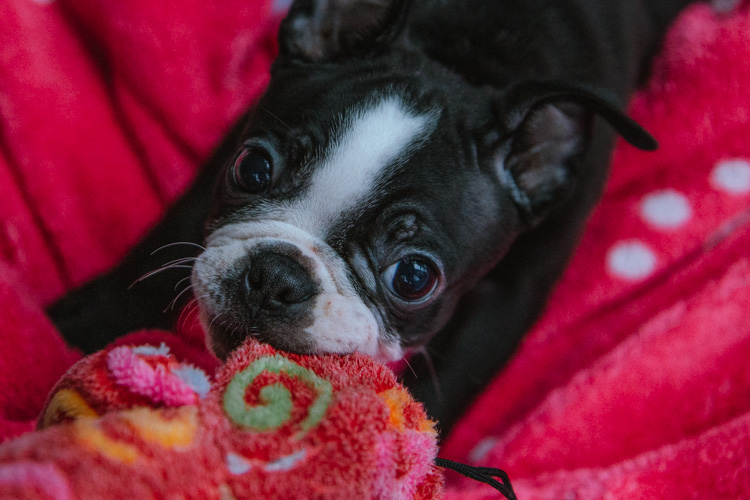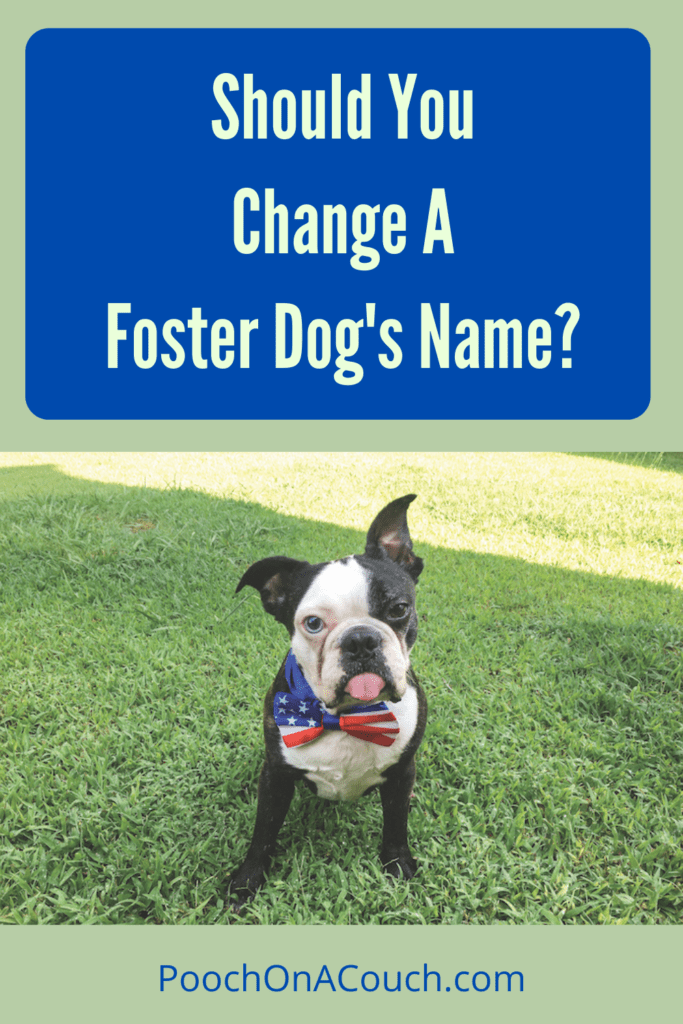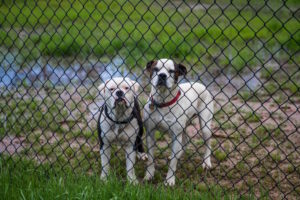Naming Foster Dogs Is Fun!
I love naming foster dogs! Don’t you?
My first official foster dog was named Lovey. Surrendered to a rescue agency with that name, the agency chose to keep it. As far as I knew, her name had always been Lovey, and I didn’t think about changing it, she wasn’t going to be my dog. Lovey always responded when I called her name. It was very familiar to her.
“Um. Did you name her Lovey?” her future new family asked me. They seemed relieved when I said I hadn’t. They wanted to change her name, and I saw no reason why they shouldn’t.
Lovey has long since had a name change, and she adjusted to her new name quickly and without any issues.
Lovey
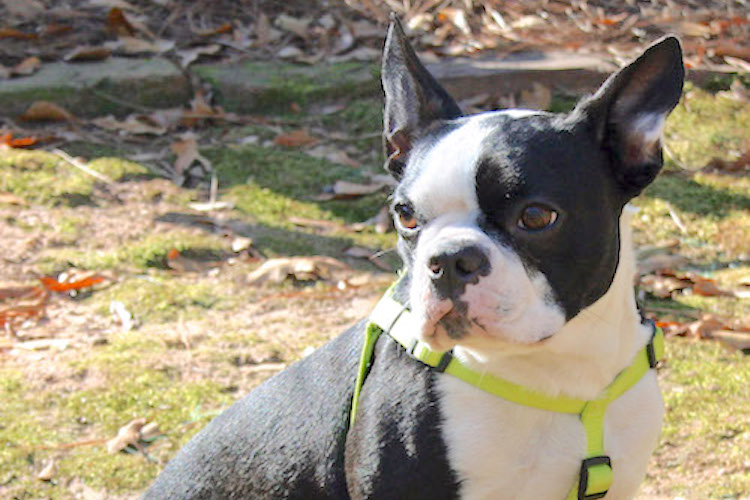
We Like Names
A few months ago, I helped arrange for an adorable but poorly conditioned shelter dog to be pulled by a rescue agency so she could get the medical care she needed. I’ll call her Faith for anonymity’s sake. We don’t know the origin of Faith – if she was an owner surrender to the shelter or she was found as a stray. So, we don’t know if Faith was her real name, it was the name on her shelter record.
This particular rescue agency leans toward re-naming foster dogs that come into their care. In this dog’s case, their social media community learned about Faith before her physical arrival to the rescue agency. In becoming emotionally invested in Faith as she made her way up the highway, they became attached to her name.
The community resisted the opportunity to pick a new name for Faith. In their mind, Faith might already know her name and to change it would just confuse her and not be helpful to her at all. The reaction was so strong, the rescue agency decided to keep her name Faith.
Naming Foster Dogs – An Opportunity To Be Creative
Naming foster dogs is fun, personal, and meaningful. Sometimes a name is chosen to match a theme. Naming litters of puppies is often done this way. We may choose names based on behavior, personality, or a particular physical marking or characteristic. Like George Foreman and his sons, some people give every pet the same name. In rescue and adoption, however, we need a variety of names!
I remember one “theme week” where the theme was 1970’s Rock. This sweet little dog was bestowed the name Foghat. I still laugh about it, and really, it’s not a bad name at all!
It’s nice to have the option to keep a dog’s name or change it. Does re-naming foster dogs cause problems?
That depends.
When Renaming Foster Dogs Makes Sense
Rescue agencies approach naming foster dogs differently. I think it’s safe to say that many dogs that come into rescue are assigned a new name, even if they were owner surrendered and seem to know their name.
Why do rescues re-name foster dogs?
Record-keeping
Keeping records is extremely important in a non-profit agency. While many rescue agencies also microchip their animals, this identifying number doesn’t always make it on to every record document a foster dog might generate. Problems can also arise if there are dogs on a rescue’s roster with the same name.
One year, I arranged intake for no less than 6 dogs all named Bo/Beau/BoBo/BooBoo. At one point, we had three Bo/Beau/Bobo dogs on the census list at the same time!
Ay-yai-yai!
Another year, it was a different popular name like Buddy or Lulu. In those circumstances, naming foster dogs something new may be a matter of necessity – and sanity – for the administrators.
Choosing super-unique names.
There is one rescue agency in particular that takes a creative approach when naming foster dogs. Every foster dog, no matter their origin, gets a new name. Not one name, but two! Having double names increased the chances that names are never repeated in their database – thus, if the agency ever needs to go back to records, it’s much easier to identify the dog than having to sort through a dozen “Buddy” cases.
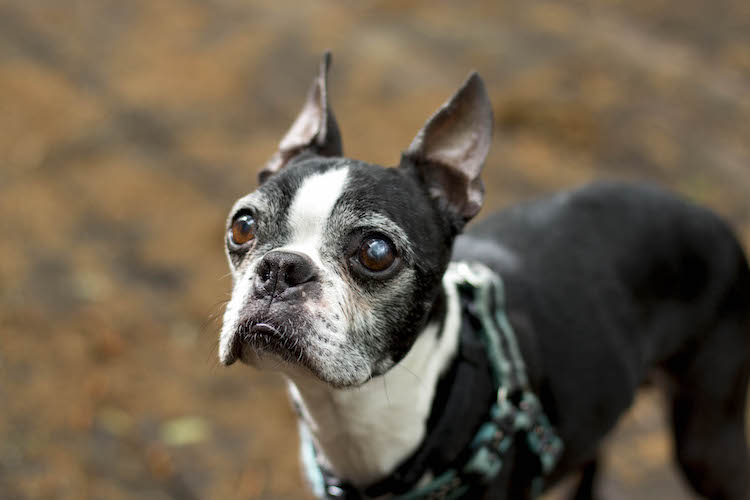
Naming Foster Dogs Can Be Symbolic
Naming foster dogs can be symbolic. It represents new life, new start, new beginnings.
I fostered Boone in his senior years. In his much younger years, his name was Scooby, then he went to a new family where his name changed to Brody. Then, he ended up at a local shelter. He knew the name Brody, but I made the (unusual for me) decision to change the name to Boone. Boone’s history was an emotional one, and I decided he needed a new name with a more fitting meaning.
Read Boone’s Story
My personal dog, Otis, was an owner surrender to animal control following a bite incident. While I probably wouldn’t have chosen the name Otis for him, he knew his name very well. I chose to keep it.
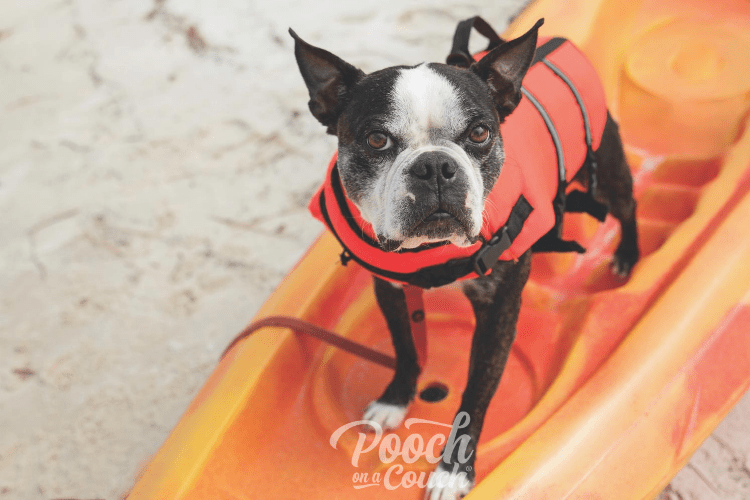
Privacy and Boundaries Often Necessitate A Name Change
While ethical and responsible rescue work requires openness and transparency, there is most certainly a need to balance that with privacy and boundaries.
Early on in my volunteer rescue days, we nearly always changed the name of a new dog, no matter the dog’s origin. Shelter dogs were usually given a new name and we almost always changed the name of owner surrender dogs.
Surrendering a dog to a rescue is a complicated process, and as part of establishing some parameters around the dog’s new journey, we’d change the dog’s name so it wasn’t so easy for the dog to, — how do I say this tactfully — be easily followed on social media by the previous family. This decision is not to be rude or cold or heartless to the surrendering family. On the contrary, it is to provide some privacy to the fostering family and later – the adopting family.
Because we were sensitive to the family’s need to know their surrendered dog was adjusting well, we’d make other arrangements to provide the surrendering family some updates.
Giving the dog a new identity is a way to signify a new journey or a new beginning and also to provide a symbolic boundary and layer of privacy.
To Provide A Memory Trigger
Sometimes naming foster dogs was based on the location where the dog was rescued. In doing so, we could more easily remember their origin and remember details of their rescue story. Trust me: after several hundred dogs over a few years, I know firsthand how easy it is to lose details of a dog’s history.
A dog from Walton County would be named Walter. Alberville? Albert. Mobile? We had a pick of a few Mardi Gras themed names.
The Name Just Doesn’t Fit
A few times, I’ve helped arrange for a dog to come into the rescue agency and I thought to myself, “Oh dear. This dog’s name will not do.” and I advise the name be changed, regardless of any attachment to the name or the dog’s familiarity with that name.
In an attempt to name a dog based on a personality or behavioral characteristic, that name can sometimes become a barrier for that dog. At least in rescue/adoption it can.
Probably my least favorite dog name for this reason is: Trouble.
Please don’t take offense if you have a delightful dog named Trouble. When you have a pet for life, you can name it whatever you’d like.
I just don’t think Trouble is a great name to give a dog that’s landed in rescue or one that you are going to list on a huge pet adoption database.
Can you think of other names that might not be a great name for a dog that is looking to be adopted? Are there names that might cause some people to skip over that dog? You don’t have to answer that, it’s just food for thought.

Reasons to Keep A Rescue Dog’s Name The Same
Dogs that come into rescue are stressed, lost, confused and are working really hard to sort out their new world. Everything is different, from smells and sounds to new people and new furry companions. A familiar name is just that — FAMILIAR. I’m all for giving a new dog as much familiar as you can while giving them all of the wonderful new experiences of being a family pet.
Safety
Calling a dog by their familiar name can possibly save their life. If you are fostering a dog that is familiar with a given name even though a rescue agency has given them a new name, you should have permission to use that familiar name in case of an urgent situation such as distracting from danger or calling the dog to you.
Anytime a dog is in a new place, a new home, with new people, they should be considered an “elopement risk” – a term I borrow from my days employed for a psychiatric hospital. Elopement is what you think it is: running away – but not to get married.
Maximizing safety is one really good reason to keep a foster dog’s original name.
Record-Keeping
We had a minor “issue” within the foster program caused by naming foster dogs. Nothing we couldn’t find a work-around for, but I share it ’cause I know I’m not the only one who’s had to deal with this!
Resist The Urge To Rename Again and Again and Again
Did I mention that naming foster dogs is fun and meaningful! Dog foster parents appreciate the joy of naming foster dogs. It’s fun, and a perk for choosing to foster the dog.
Did I also mention the whole popular name problem? Too many Bos, Buddys, and Lulus. It isn’t fun to tell a foster mom that she can’t use the name she picked out for her new foster dog because we’d already had one this year. What a killjoy.
Then there’s the dog that moves from foster home to foster home.
I remember Ollie. That’s the first name he received, I think, but I could be mistaken on that detail.
In a foster home, his name was changed to Wally, because she liked the name Wally.
When he moved again, his name changed a THIRD time, and he was named Earl. I ended up referring to him as Wally Ollie Earl just so I could keep up.
His paperwork was a nightmare! He saw vets in three or four different clinics in two states and his name was different on different records. It took extra work to keep his chart accurate. I think everyone’s life gets a bit complicated when a foster dog’s name gets changed too frequently while it waits for adoption.
So, my advice is this: no matter who gets the joy of naming foster dogs, pick one name and stick to it. Let the next name change happen with the adoptive family.
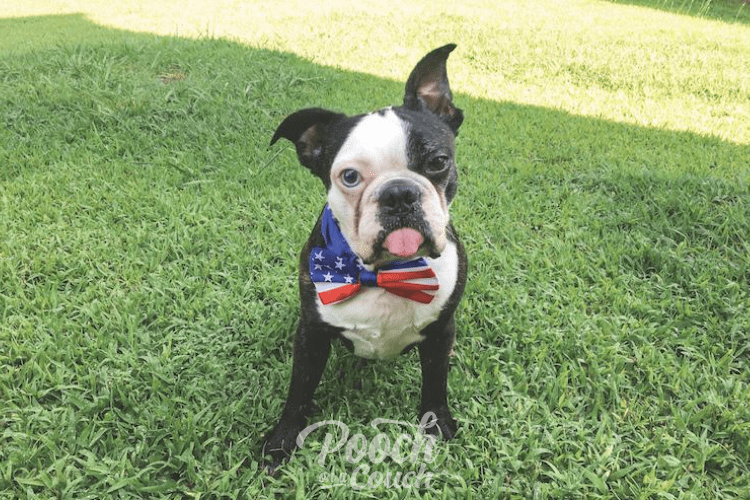
Do Dogs Really Know Their Name?
Yes and no. According to animal behaviorists and researchers, dogs learn that when they hear a certain word (their name) something happens afterward, or nothing happens at all.
For example, if I say “Otis”, my dog raises his head and looks at me. He knows I’m either going to ask him to do something or I’m going to give him food. If I say, “Oatmeal” for example, he’s less likely to respond, although the “O” sound is a strong sound as well as being familiar.
My facial expression, eye contact, and body posture also help communicate my intention to my dog.
Dogs don’t understand the complexity of a name as an identity. So instead of a dog thinking, “hey, they are talking about me!” when they hear the word that is their name, they think “food!” “attention!” or “oh no. the yelling is about to start.”
Dogs respond to tone, reward, habit.
Is It Easy To Change A Dog’s Name?
So, science says you can change a dog’s name pretty easily if you want to do that. In fact, most dogs have several nicknames and over time, they learn to respond to those words as well. Do you have nicknames for your dogs? Do they respond to their nicknames, too?
My long-term foster dog is named Sassy Blue. One of her nicknames is Sassy Pants. Over time, I shortened it to Pants. Sassy now responds when I call out, “Pants!” It is pretty funny.
Dogs could care less what you call them. Just call them with kindness and make sure good things happen when they respond. Then, they’ll respond when you need to protect them.
That said, dogs benefit long-term from having the same name. Keeping a dog’s name if (the dog is rock-solid responsive to that name) provides a level of safety and predictability you might not have otherwise.
How To Teach A Dog A New Name
What is the best way to teach a dog a new name?
Food + positive association + repetition.
First, put yourself near your foster dog. Say the new name, and give a treat. Repeat. Repeat again.
say name, give a treat. say name, give a treat. say name, give a treat. At this point, you have zero expectations that your foster dog is going to respond to this word.
Wait a little bit. Do it again. Do it multiple times a day for several days.
After some repetitions over a few days, check in with your dog. Get close. Call their name and wait for just a second to see if they look at you. If they do, reward that with a treat.
Call name, wait for them to look at you, and reward. Repeat. Repeat again.
Then you can add a little distance and start working on having the dog look at you when you call their name from the other end of the room.
The purpose of calling a dog’s name is to get their attention and for them to wait for further instructions from you.
Never call a dog’s name when you are frustrated, angry, or you want to shame them. Saying, ” (name) Bad Dog! Look what you did!” will give your dog the message that sometimes negative things happen when they hear their name and they may avoid responding to you when you need them to. Hearing their name should mean good things, 100 percent of the time.
What do you think about renaming foster dogs? Keep dog names or change them? When and why or why not? Join the conversation!
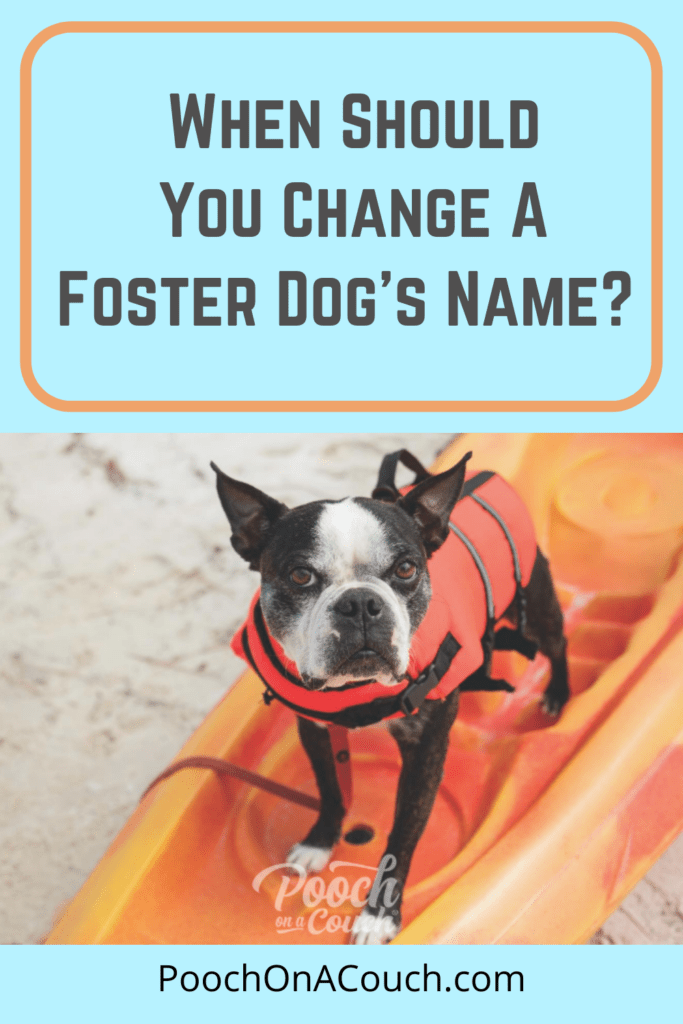
A Little Extra Credit Reading
Dogs Process Language Like Us, But What Do They Understand?
Popular Posts
- HOW TO CHOOSE A DOG RESCUE AGENCY
- ULTIMATE GUIDE TO FOSTERING: 10 SKILLS YOU NEED
- VOLUNTEER IF YOU CANNOT FOSTER

